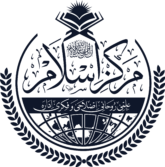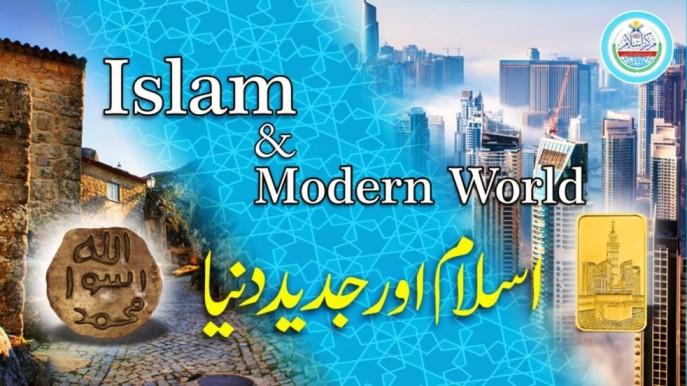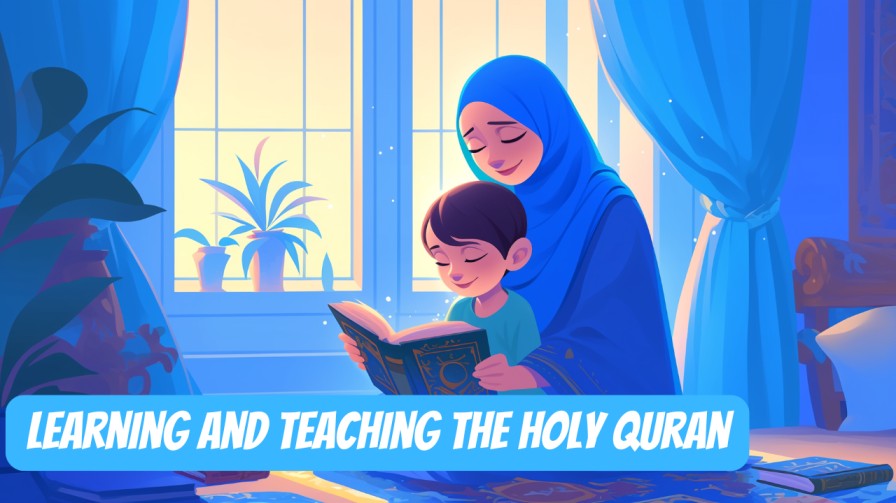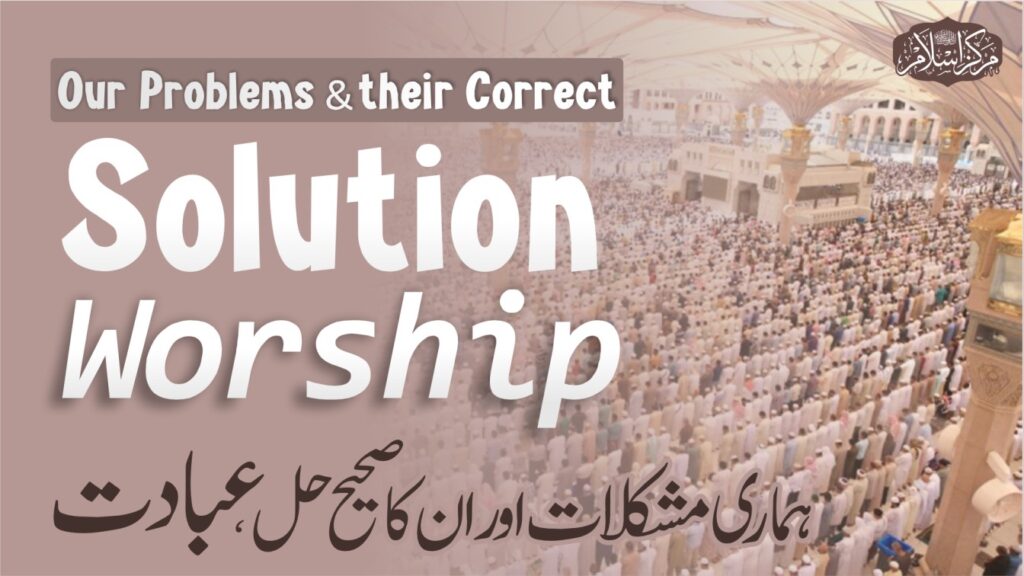The discussion of Islam and the modern world forces us to examine our inner realities and examine our actions. Innovation, on the one hand, brings ease, but it also creates new problems. Scholars first consider the issues arising from them and later look at their facilities and finally adopt them under compulsion and try to let their negative effects affect the common people. Islam does not prevent us from being modernized but rather encourages us to improve our situation and forces us to reflect. In today’s world, where there is a tendency towards materialism, rapid development, and self-absorption, Islam shows us the path of peace, truth, and high morality. No matter how far we go in our lives, real success is that which turns our hearts towards Allah and makes us realize our own shortcomings. For example: if someone is engaged in business, they think that if they don’t lie, their goods won’t sell. If someone is a shopkeeper, they might consider shortchanging the scales. If someone is a politician, they might make false promises and later deny them. In light of Islam’s teachings, we need to assess how firmly we adhere to principles of faith and ethics in our commitments and where we have become negligent or self-centered.
Table of Contents
Historical contribution of Islam to modern civilization
The contributions of Islamic civilization in the fields of knowledge, science, medicine, mathematics, philosophy, and the arts are felt everywhere in today’s modern world. Since the beginning of Islam, knowledge has been given importance, the Dar al-Hikmat of Baghdad and the universities of Cordoba have been the cradle of knowledge for centuries. Al-Khwarizmi founded algebra, Ibn al-Haytham researched light and vision, and Ibn Sina’s “Al-Qanun fi al-Tabb” became a book that revolutionized the world of medicine. Islamic philosophy left a profound impact on the Western Renaissance and scholars like Ibn Rushd and al-Farabi gave a new direction to thought. Islamic architecture and calligraphy also introduced a distinctive and unique style to the world, which we still see today in grand mosques and buildings.
These contributions of Islam remind us that Islamic civilization has left a great legacy not only in its era but also for future generations. Today we need to adopt the same Islamic commitment, knowledge and wisdom so that we can do something new for the world by staying on our foundations in future development. This legacy from the past teaches us that the pursuit of knowledge for the sake of pleasing Allah leads us to the welfare of humanity and spiritual greatness. It reminds us of our responsibility to leave behind a similar light of knowledge, wisdom, and insight for future generations.
Islamic values in a changing world
In a changing world, Islamic values remind us that true success lies not in worldly glitz and glamour, but in the principles taught to us by Allah and His Messenger ﷺ. While today’s individual races towards modernity and material progress, Islamic values show us a path of peace and tranquility amid this pursuit. The Quran tells us,
ٱلَّذِينَ ءَامَنُوا۟ وَتَطْمَئِنُّ قُلُوبُهُم بِذِكْرِ ٱللَّهِ أَلَا بِذِكْرِ ٱللَّهِ تَطْمَئِنُّ ٱلْقُلُوبُ
“Indeed, in the remembrance of Allah do hearts find peace” (Surah Ar-Ra’d: 28). This verse reminds us that instead of chasing superficial joys, we should follow Allah’s commandments to bring peace to our souls. Islamic principles teach us forgiveness, love, justice, and sacrifice, drawing us closer to humanity and to Allah’s pleasure. In these times, we must recognize our negligence and selfishness, instilling fear of Allah in our hearts and sincerity in our actions. Islamic values elevate our souls to a height where the blind race for worldly desires becomes insignificant.
Technology and Faith:
The relationship between technology and faith is so deep that in today’s age we need to consider our actions even more. Technology has drowned us in the sea of information, but is it also bringing us closer to Allah or are we moving away from our faith because of it? The Qur’an teaches us that Allah is everywhere and that turning to Him is necessary in all situations. But today, we have started to forget this truth by getting lost in the colours of technology. We have to get out of our mobile, computer and social media world and think whether we are using these things to strengthen our faith or are these things putting us in the slavery of self? Faith calls us to bow down to our Creator and confess our mistakes, and this is our test to make technology a light that brings us closer to God’s will, not distracting us from His remembrance.
Islam and Social Justice in Modern Times:
In the spirit of Islam, social justice is the basic principle without which a balanced and peaceful society cannot exist. In today’s modern age, where selfishness and selfishness are common, we need to return to Islamic teachings that teach us humanity, justice, and equality. The Qur’an reminds us time and again that all human beings are equal in the sight of Allah Almighty and no one has superiority over another, except in piety.
I believe it would be unjust to this blog if I did not mention Hazrat Umar (may Allah be pleased with him) here. Once, Hazrat Umar (may Allah be pleased with him) wished to deliver a sermon to the Muslims. During the sermon, a companion stood up and asked, “O Commander of the Faithful, first tell us how you acquired this cloth?” The situation was such that each companion had been given one cloth from the public treasury, but Hazrat Umar was wearing clothing made of two pieces. The companion assumed that the Commander of the Faithful had taken more than his share from the public treasury. Hazrat Umar replied, “Listen to me! I made this clothing from the share that my son Abdullah bin Umar (may Allah be pleased with him) received.” Abdullah bin Umar immediately stood up and testified, “Yes, I gave my share to my father so he could complete his clothing.” The companion then said with satisfaction, “Now we can listen to your words.” This incident is an excellent example of how vital justice and transparency are for the head of an Islamic state.
But have we ever looked at ourselves in the mirror of such justice? Have we considered others’ rights in our lives? Today, when we see poverty, injustice, and oppression around us, do we ask ourselves if we are doing anything to stop it? Social justice means purifying our hearts of pride, envy, and negligence and caring for others as we care for ourselves. If we truly adhere to the teachings of Islam, this world could become a paradise, but this is only possible if we end our negligence and make the message of justice and compassion a part of our lives.
Islamic views on the challenges of modern lifestyle
In today’s fast-paced life, we find ourselves increasingly entangled in worldly desires and material possessions. It is precisely in these moments that we feel the need for the simplicity and truth-filled teachings of Islam. The Quran and Sunnah provide us with principles through which we can give our lives purpose and peace. We must remember that the life we toil for day and night, losing sleep over, is only for a few days. Allah says in the Quran, “Verily, in the remembrance of Allah do hearts find rest” (Surah Ar-Ra’d: 28).
Once, Hazrat Umar (may Allah be pleased with him) wore a rough cloak and simple clothing, despite being the Caliph of the Muslims and having the means to wear fine garments if he wished. Someone asked him, “O Leader of the Believers! Why do you wear plain clothes?” Hazrat Umar replied, “If I get lost in the glitter of this world, how will I answer to Allah on the Day of Judgment?” This teaches us that, despite the challenges of a modern lifestyle, if we hold onto Islamic teachings and simplicity while nurturing humility in our hearts, we can draw closer to Allah.
Misconceptions and the Media:
In today’s world, the role of media has become so dominant in our lives that we accept everything we see and hear as truth, whether it’s right or wrong. Misconceptions spread about Islam and Muslims influence our thinking, and it pains the heart to see how facts are sometimes distorted by the media. The Qur’an repeatedly teaches us to accept information only after careful investigation and reflection. Yet, we often hastily believe hearsay and, in our carelessness, hold others responsible. When we don’t strive to understand the falsehoods hidden behind the media’s so-called truths, this negligence distances us from reality. We should remember the Hadith of the Prophet Muhammad ﷺ: “A Muslim is one from whose hand and tongue other Muslims are safe” (Bukhari).
Allah commands us to walk the path of justice and truth. If we cleanse our hearts of bias and hatred and seek to know the truth, we might become aware of our shortcomings and begin to see what Allah wants us to see, rather than what we are shown.




